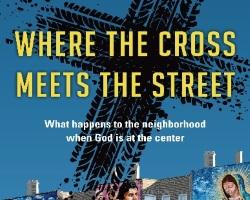IVP Books, 2015, 183 pp., $11.84
My husband and I often have wondered: Is it easier to bring social justice to the evangelicals or Jesus to the mainliners?
The book, part memoir, is a fascinating read. Throughout, Noel shares his own story, using it to emphasize how and why he became involved in community development. As a white female committed to better understanding different cultures and races, I felt a sense of shame when I realized how little I know about the Mexican community, especially given its growing importance in the United States. For this reason, I greatly appreciated Noel’s willingness to share his heritage and story throughout this book, along with the joys and challenges Mexican immigrants face, including in my own city of Chicago.
Throughout Where the Cross Meets the Street, I appreciated the way in which Noel unpacks his theology of ministry. In his words, “God consistently puts the neglected and oppressed at the center of His ultimate concern, not by targeting them as the objects of His salvific action but by redeeming and engaging them to be co-laborers with the Holy Spirit in the mission of declaring and demonstrating to the entire world the kingdom of God is at hand.”
More than just a theology book, Where the Cross Meets the Street is practical. Chapter 9, “Confrontation of Injustice,” shines in this regard, helping people think critically about their involvement in a variety of justice issues, including immigration, mass incarceration and education, which Noel suggests is the “most significant justice issue many of our poor communities face.”
As a youth pastor and Christian committed to Jesus and social justice, I have no doubt that Where the Cross Meets the Street is a book I will refer to and recommend often.




